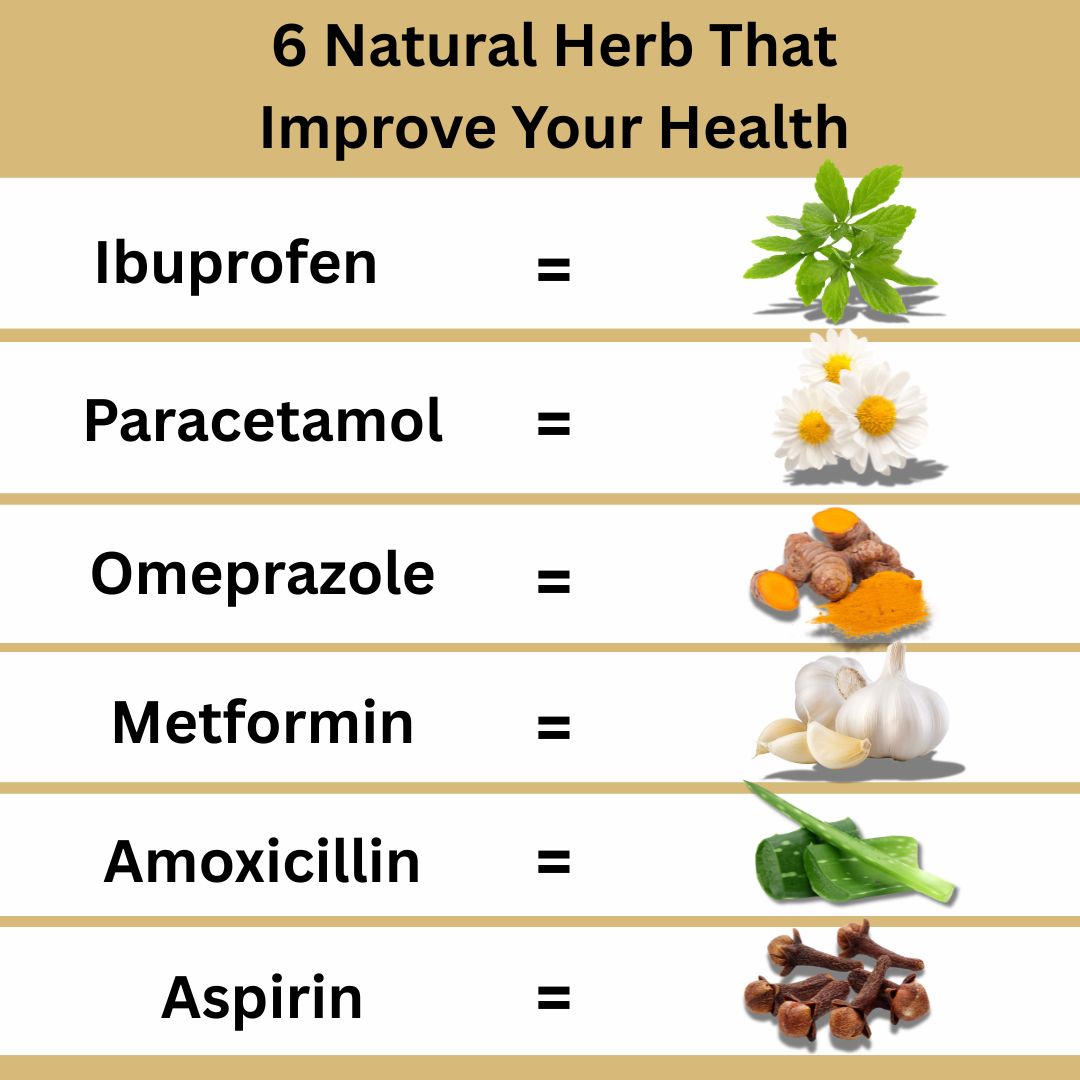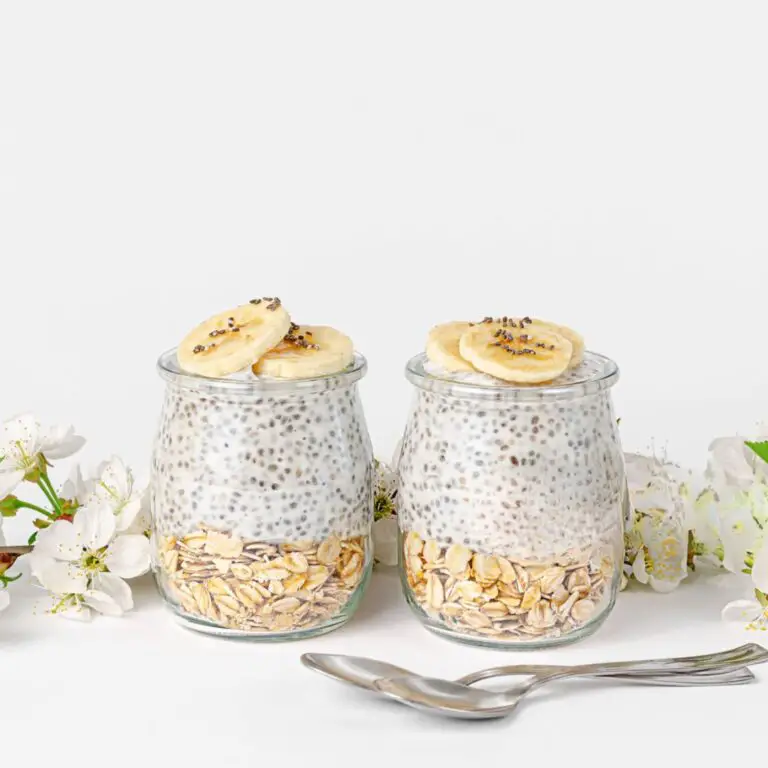6 Natural Herbs That Improve Your Health: Nature’s Powerful Alternatives to Common Medicines
In a world where synthetic medicines dominate, many people are turning back to nature’s bounty for health solutions. From soothing headaches to boosting immunity, certain herbs have been used for centuries across cultures, offering gentle yet effective remedies for common ailments. What’s fascinating is how these natural herbs often mirror the effects of popular pharmaceutical drugs — but without harsh side effects.
Imagine replacing your daily ibuprofen, paracetamol, or even antibiotics with natural alternatives that your body can easily assimilate. This isn’t just wishful thinking; nature truly provides powerful tools to support your health. In this article, we’ll explore 6 natural herbs that parallel well-known medicines, how they work, and how to use them safely and effectively. Get ready to enhance your wellness routine with these botanical wonders!
Why You’ll Love These Natural Herb Remedies
You might be wondering why you should consider herbs over over-the-counter or prescription drugs. The appeal lies in their holistic approach. Unlike many pharmaceuticals that target symptoms, herbs often work by addressing underlying imbalances and supporting the body’s own healing mechanisms.
For instance, turmeric’s anti-inflammatory properties mirror the effects of omeprazole but without risking gut irritation. Garlic, a natural blood sugar regulator, offers benefits similar to metformin while promoting cardiovascular health. Plus, these herbs come with antioxidants, vitamins, and minerals, enriching your diet and wellbeing.
They’re accessible, affordable, and often easier on your body. With the growing resistance to antibiotics like amoxicillin, aloe vera presents a gentle yet effective alternative with antimicrobial properties. Using these herbs allows you to harness nature’s wisdom while minimizing exposure to synthetic chemicals.
Incorporating these herbs into your routine can transform your approach to health from reactive to preventive — making you stronger, more balanced, and energized.
Ingredients: 6 Natural Herbs and Their Medicinal Equivalents
- Matalafi (Ibuprofen Alternative)
A traditional Polynesian herb known for potent anti-inflammatory and pain-relieving properties. - Chamomile (Paracetamol Alternative)
A soothing herb with calming effects and mild pain relief, often used for headaches and fevers. - Turmeric (Omeprazole Alternative)
Contains curcumin, a natural anti-inflammatory and digestive aid that helps reduce stomach acidity and ulcers. - Garlic (Metformin Alternative)
Known to improve blood sugar regulation and cardiovascular health, supporting metabolic balance. - Aloe Vera (Amoxicillin Alternative)
With strong antimicrobial and healing properties, aloe vera promotes skin and gut health. - Cloves (Aspirin Alternative)
Rich in eugenol, cloves provide natural pain relief and anti-inflammatory effects.
Necessary Tools for Preparing Herbal Remedies
- Sharp knife or scissors (for chopping herbs)
- Mortar and pestle or grinder (to crush herbs for teas or powders)
- Glass jars or bottles with lids (for infusions or tinctures)
- Cheesecloth or fine strainer (for filtering liquids)
- Measuring spoons or cups
- Clean water (preferably filtered or spring water)
- Spray bottle (optional, for topical applications)
Ingredient Swaps and Additions
While these herbs are powerful on their own, you can customize or enhance their effects by mixing with complementary herbs or ingredients:
- Matalafi: Mix with ginger for added pain relief.
- Chamomile: Blend with lavender to enhance relaxation.
- Turmeric: Combine with black pepper to increase curcumin absorption.
- Garlic: Add cinnamon to boost blood sugar control.
- Aloe Vera: Mix with honey for soothing digestive drinks.
- Cloves: Pair with cinnamon or nutmeg for enhanced anti-inflammatory effects.
These swaps allow you to personalize your remedies according to your taste and health goals.
Step-by-Step Instructions to Prepare Herbal Remedies
1. Matalafi Pain Relief Tea
- Chop fresh matalafi leaves finely.
- Boil 2 cups of water and add 2 tablespoons of chopped leaves.
- Simmer for 10 minutes, strain, and drink warm.
Tip: Drink 2-3 times a day during flare-ups for best effect.
2. Chamomile Soothing Infusion
- Place 1 tablespoon of dried chamomile flowers in a cup.
- Pour boiling water over and cover for 5 minutes.
- Strain and sip slowly, especially for headaches or fever.
Tip: Add honey for flavor and extra soothing benefits.
3. Turmeric Digestive Elixir
- Mix 1 teaspoon of turmeric powder with warm water or milk.
- Add a pinch of black pepper to enhance absorption.
- Drink before meals to calm acidity and improve digestion.
Tip: Use fresh turmeric root grated if available for stronger effects.
4. Garlic Blood Sugar Balancer
- Crush 2 cloves of garlic and let sit for 10 minutes (activates beneficial compounds).
- Consume raw or mix into food. Alternatively, steep in hot water for a garlic tea.
Tip: Consistency is key—daily intake helps regulate blood sugar over time.
5. Aloe Vera Antimicrobial Gel
- Extract fresh aloe vera gel from a leaf.
- Apply topically to wounds or skin irritations. For internal use, blend gel with water and consume in small amounts.
Tip: Always patch test topically to avoid allergic reactions.
6. Clove Pain Relief Paste
- Grind 1 teaspoon of whole cloves to a fine powder.
- Mix with a few drops of water or coconut oil to form a paste.
- Apply to gums or painful areas for relief.
Tip: Use sparingly as cloves are potent.
Pro Tips for Success with Herbal Remedies
- Always source fresh, organic herbs when possible for maximum potency.
- Use glass containers instead of plastic to avoid chemical leaching.
- Store dried herbs in airtight jars away from sunlight to preserve properties.
- Start with small doses to monitor your body’s response.
- Consult with a healthcare professional before substituting herbs for prescribed medications, especially if you have chronic conditions or are pregnant.
- Combine herbs with a balanced diet and healthy lifestyle for best results.
Serving Suggestions for Herbal Preparations
- Serve matalafi tea with a slice of lemon for a refreshing twist.
- Use chamomile infusion as a bedtime drink to improve sleep quality.
- Add turmeric elixir to smoothies or soups for an anti-inflammatory boost.
- Incorporate crushed garlic into salad dressings and sauces.
- Apply aloe vera gel directly after sun exposure to soothe skin.
- Chew on cloves after meals for digestive aid and fresh breath.
Storing and Reheating Herbal Remedies
- Herbal teas and infusions are best consumed fresh but can be refrigerated for up to 48 hours.
- Store tinctures and aloe vera gel in the fridge, consuming within a week.
- Avoid reheating herbal drinks multiple times to preserve active compounds.
- Use airtight containers to prevent contamination and oxidation.
- Label all homemade preparations with date and ingredients.
Nutritional Information (General Overview)
Herbs like turmeric, garlic, and aloe vera provide a rich spectrum of nutrients:
- Turmeric: Curcumin (anti-inflammatory), manganese, iron, vitamin B6
- Garlic: Allicin (antimicrobial), selenium, vitamin C, B6
- Aloe Vera: Vitamins A, C, E, folic acid, magnesium
- Chamomile: Flavonoids, antioxidants
- Cloves: Eugenol, manganese, vitamin K
- Matalafi: Rich in antioxidants and polyphenols (specific nutrient profiles vary)
These compounds support immune function, reduce oxidative stress, and promote overall wellness.
Frequently Asked Questions (FAQs)
1. Can these herbs completely replace conventional medicines?
Herbs can complement and sometimes reduce the need for pharmaceuticals, but always consult a doctor before stopping prescribed medications.
2. Are there any side effects?
Natural doesn’t always mean risk-free. Allergies or interactions are possible, so start with small doses and monitor your response.
3. How long does it take to see results?
Herbal remedies often work gradually over weeks. Consistency is essential for noticeable benefits.
4. Can I grow these herbs at home?
Yes! Many of these herbs grow well in pots or gardens, making fresh access easy and sustainable.
5. Are these herbs safe for children and pregnant women?
Some herbs may not be safe in these groups. Always check with a healthcare professional before use.
Conclusion
Embracing natural herbs like matalafi, chamomile, turmeric, garlic, aloe vera, and cloves can revolutionize how you manage your health. These plant-based remedies offer effective, gentle alternatives to many common medicines, supporting your body holistically and sustainably. Whether you’re seeking relief from pain, inflammation, digestive discomfort, or infections, nature provides powerful tools ready to be explored. By incorporating these herbs thoughtfully into your routine, you nurture your well-being naturally and enjoy the timeless wisdom of herbal medicine. Start your herbal journey today and experience the transformative power of nature’s pharmacy!







